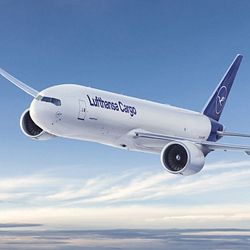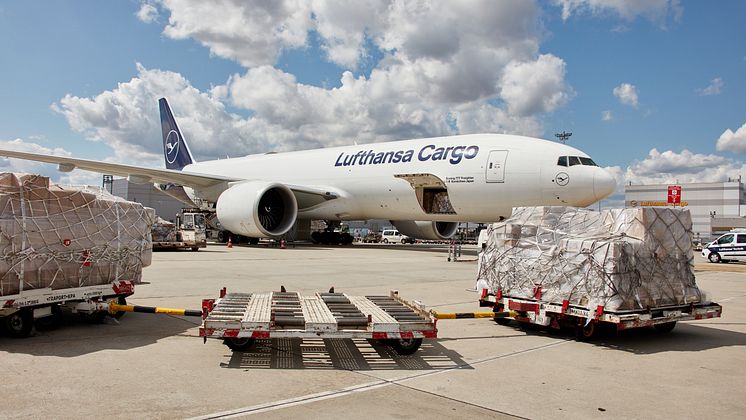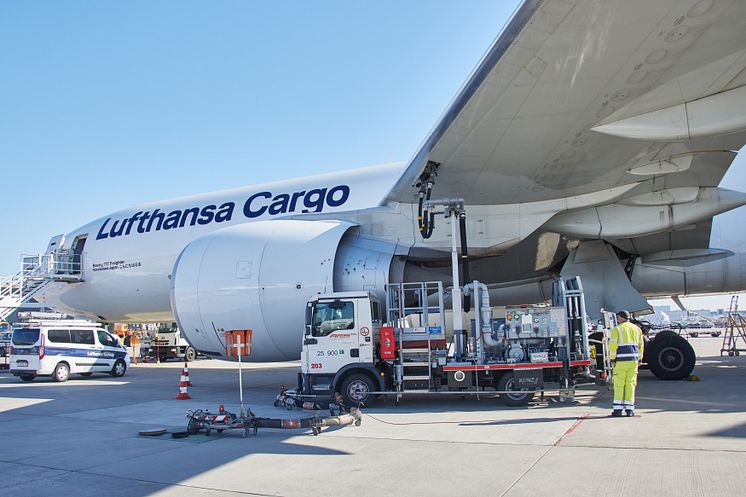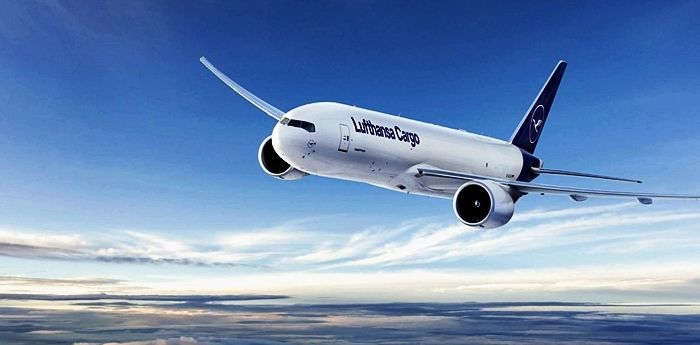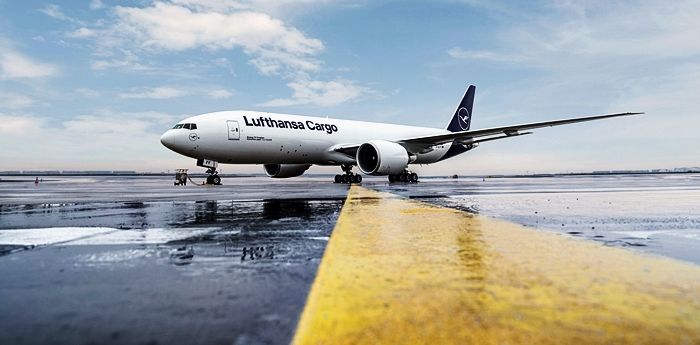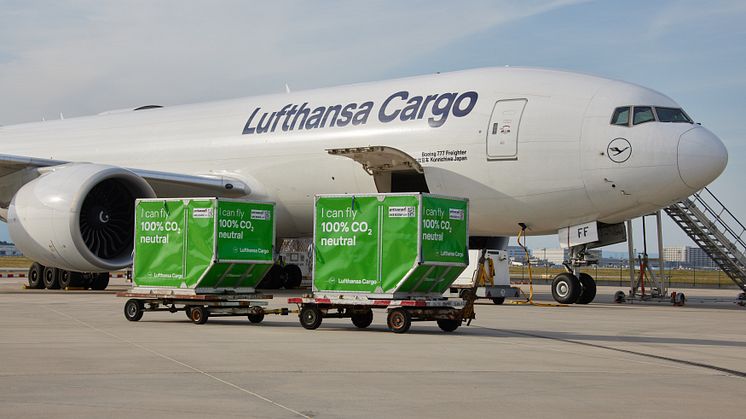
Press release -
Flying data and sustainable progress - Lufthansa Cargo on airfreight trends 2023
The global logistics market continues to experience turbulent times. Nevertheless, after three years in crisis mode, a normalizing market is in sight. Lufthansa Cargo is optimistic about the year 2023 and is positive about fundamental trends such as digitalization and sustainability as well as the associated challenges in airfreight.
Increasing capacities likely
The peak phases of the Covid pandemic clearly demonstrated the importance of air freight in logistics. It is an indispensable component of global supply chains. This made the past crisis years all the more challenging for the industry. The temporary shutdown of many passenger aircraft fleets led to a considerable loss of cargo space, as around half of the world's air freight tonnage is carried as supplementary cargo. Although there will continue to be strained supply chains, partly due to global dynamics, Lufthansa Cargo nevertheless expects increasing freight capacities to help ease the situation in the coming year. Above all, the continuous increase in passenger flights and the outlook for a reopening Asian market allow us to look to the future with confidence.
"Recent years have shown that global trade is resilient and there continue to be growth markets. Air freight has always been dynamic and volatile. Flexibility is and will continue to be in demand in the future," said Dorothea von Boxberg, Chairman of the Executive Board and CEO of Lufthansa Cargo. The year 2023 will not require a fundamental change in strategy, but will continue to drive measures already underway and maintain a forward-looking willingness to learn, von Boxberg added.
Digitization and AI as a competitive factor
Across all industries, the pandemic years have led to digitalization being driven forward strongly in many areas. According to Lufthansa Cargo, this will continue in the airfreight sector, and at an accelerated pace. Networking through the intelligent use of data and the increasing automation of processes will become performance and competitive factors for the industry.
"Even before the pandemic, topics like digitalization and AI were important. In air freight, there are still many opportunities to use data to add value and interact with partners in real time. The industry is characterized by the fact that we collaborate very strongly across the board. One example of this is the nationwide research project 'Digitales Testfeld Air Cargo' of the German Federal Ministry of Transport (BMVI), which is coordinated by the Fraunhofer Institute for Material Flow and Logistics (IML). We are pleased to be working as a project partner to help position Germany as an air cargo location for international competition in the future," says Dorothea von Boxberg.
Sustainability still a major issue
The future of air freight logistics will continue to be driven to a large extent by the issue of sustainability. Today, the industry is already making a diverse contribution to climate protection. In addition to CO2neutrality on the ground, for example through electrification or solar installations, Lufthansa Cargo believes that it will be indispensable to further advance the sustainability of the aircraft as a means of transport, for example through fleet modernization. However, it is also important that regulations on quotas of sustainable fuels (Sustainable Aviation Fuels) are designed to ensure fair competitive conditions. "For us, sustainability is a very special priority. We have set ourselves the ambitious goal of halving our CO2 emissions per kilogram when flying by 2030. Efficient flying and expanding the use of sustainable fuels are the focus," explains Dorothea von Boxberg. "But to really make a difference, we need to think holistically about the issue and also take smaller measures such as loading equipment optimization and recycling seriously. We are convinced - every contribution counts."
Topics
Categories
Lufthansa Cargo AG
With a turnover of 3.8 billion euros and a transport performance of 7.2 billion freight ton kilometers in 2021, Lufthansa Cargo is one of the world's leading companies in the transport of airfreight. The company currently employs around 4,200 people worldwide. Lufthansa Cargo's focus is on the airport-to-airport business. The route network covers around 300 destinations in more than 100 countries, using both freighter aircraft and cargo capacity from passenger aircraft operated by Lufthansa, Austrian Airlines, Brussels Airlines, Eurowings Discover and SunExpress, as well as trucks. The majority of the cargo business is handled via Frankfurt Airport. Lufthansa Cargo is pursuing the goal of becoming the world's most sustainable cargo airline. To achieve this, the company relies on state-of-the-art technologies and continuous investments in the area of sustainability. In 2021, important milestones were reached, such as the fleet modernization to an all-B777F fleet and the introduction of completely CO2-neutral freight transport for all customers. In 2022, Lufthansa Cargo plans to successively equip its fleet with Sharkskin technology and expand its Sustainable Aviation Fuel program to further reduce CO2 emissions. Lufthansa Cargo is a wholly owned subsidiary of Deutsche Lufthansa AG and the specialist for the logistics business of the Lufthansa Group.


